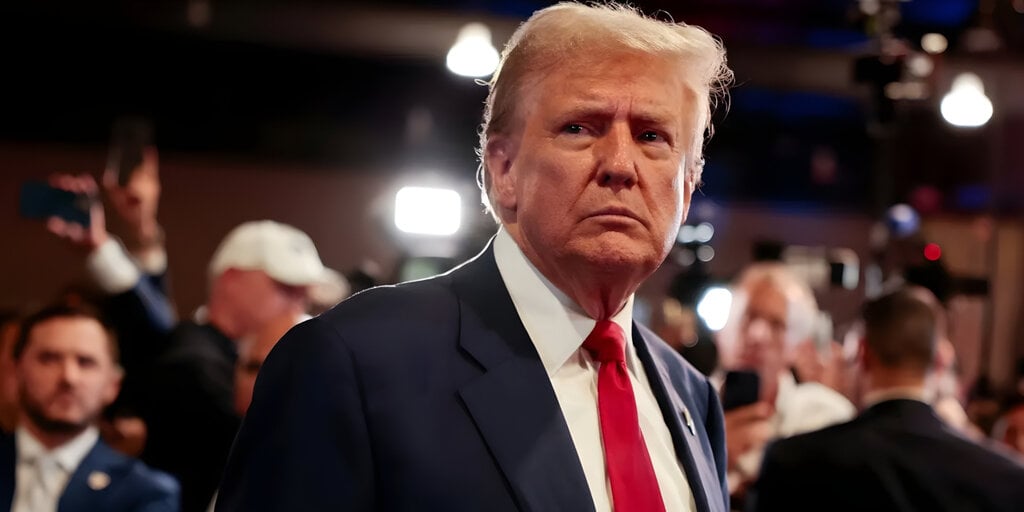Stablecoin Legislation Faces Challenges in House Committee
A recent markup session by the House Financial Services Committee on stablecoin legislation took an unexpected turn as Democrats dedicated hours to reiterating their stance. While they expressed conditional support for the STABLE Act, they raised concerns over President Donald Trump’s involvement in the stablecoin market, viewing it as a significant conflict of interest.
Democrats Propose Amendments to Address Conflicts of Interest
Several Democratic members, including one of the co-sponsors of the STABLE Act, presented amendments aimed at preventing President Trump, his administration, and certain high-profile individuals like Elon Musk from offering stablecoin products while holding office. However, the Committee’s narrow Republican majority dismissed these amendments through voice votes.
Republicans Defend Current Legislation Against Amendments
Republican leaders responded to the proposed changes by emphasizing that the STABLE Act mandates uniform compliance for all stablecoin issuers. They argued that excluding specific issuers, including the president, would hinder competition in the market. The current legislation outlines rules requiring compliance with anti-money laundering regulations and reserve audits for all stablecoin providers operating in the U.S. market. “We’re not picking winners and losers here,” stated Committee Chair French Hill (R-AR). “If you don’t want to use a payment stablecoin, don’t use one.”
Concerns Raised Over Trump’s Stablecoin
A number of Democrats contested the notion that the World Liberty Financial USD1 token, backed by Trump, should be treated equally to other stablecoin offerings. Representative Stephen Lynch (D-MA) emphasized that Trump’s unique position as the U.S. president raises ethical concerns, particularly regarding the use of taxpayer funds to support his family business during financial difficulties.
The Role and Legal Status of Stablecoins
Stablecoins are digital currencies linked to the U.S. dollar, providing cryptocurrency traders a way to make transactions without having to convert back to cash. Some issuers, including Trump’s World Liberty Financial, claim that their products bolster the dominance of the U.S. dollar in both domestic and international markets. However, the absence of a clear regulatory framework in the United States casts doubt on the legality of such stablecoins.
Timing of Trump’s Crypto Announcement Raises Eyebrows
The Trump family’s foray into crypto investments has sparked debate since his return to the White House, where he is tasked with developing the country’s first regulatory framework for digital assets. The announcement of their stablecoin product coincided with the rapid progression of stablecoin legislation through Congress, drawing significant attention from Democrats.
Inadvertent Timing or Strategic Move?
Sources familiar with the situation indicated that the launch of World Liberty’s stablecoin was not intended to occur at this time. It appears that the revelation of blockchain data related to the product compelled the team to act sooner than planned.
Uncertainty Surrounds Bipartisan Support for the STABLE Act
It remains to be seen whether the controversy surrounding Trump’s involvement in cryptocurrency will notably affect bipartisan backing for the STABLE Act, which had previously been anticipated to receive considerable support from Democrats. A staff member from the House Financial Services Committee conveyed to Decrypt that they do not foresee substantial changes in Democratic support following the markup session.
Republican Chair Acknowledges Complications from Trump’s Involvement
Despite the ongoing discussions, on Monday, Committee Chair Rep. Hill acknowledged that Trump’s engagement with cryptocurrency—especially involving his stablecoin and meme coin ventures—has complicated the legislative process.
Democrats Voice Concerns Over High-Ranking Officials in Crypto
Some Democrats, including STABLE Act co-sponsor Rep. Sam Liccardo (D-CA), voiced strong criticisms regarding Trump’s involvement in the crypto space during the session. Liccardo underscored the obvious need to prohibit high-ranking officials like Trump from launching their own stablecoins, highlighting potential risks of foreign interests attempting to gain favor with the president through such tokens.
Existing Support for the STABLE Act Remains Steady
Despite the recent controversies, a staff member familiar with the House Financial Services Committee indicated that Democrats who previously supported the STABLE Act are unlikely to shift their stance based on amendments that, while significant, may not fundamentally alter their views on the legislation. “You can connect the dots on what will happen if those amendments don’t get in,” the staffer remarked.

